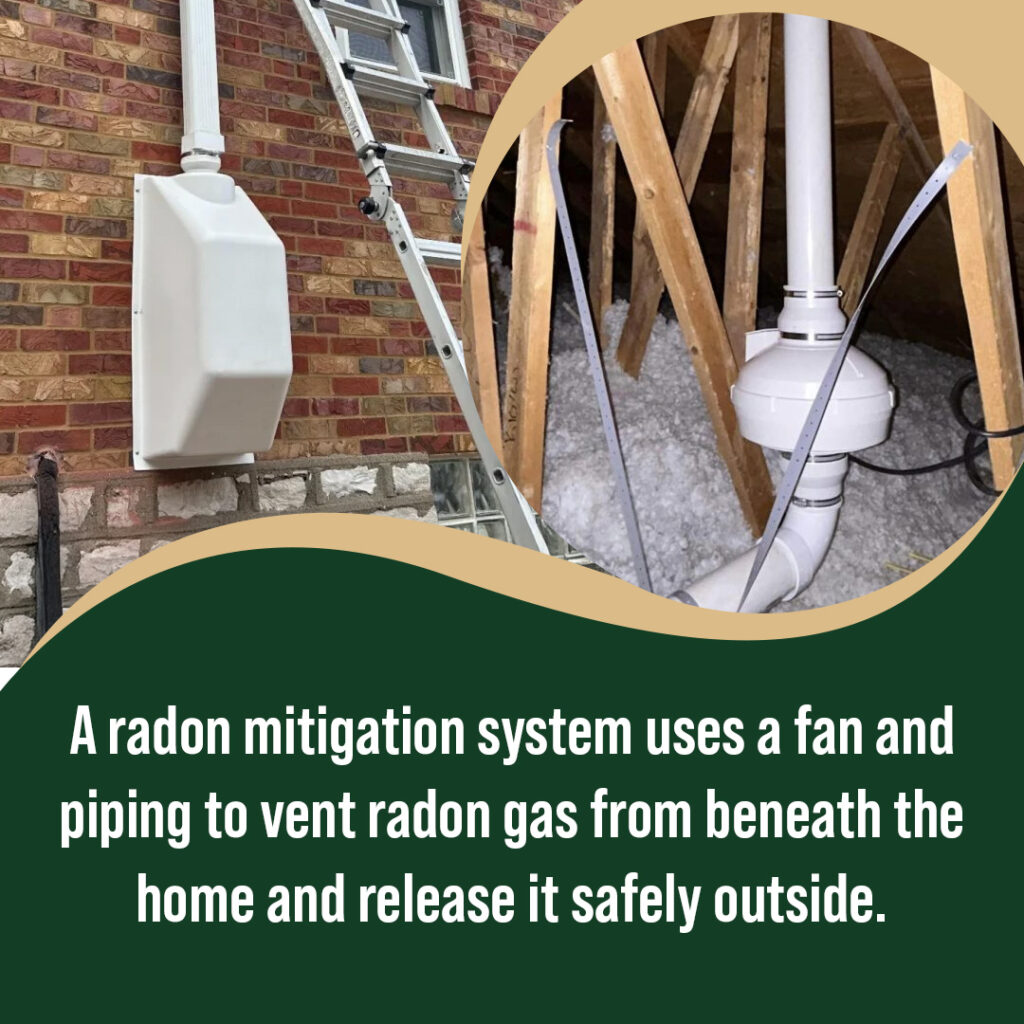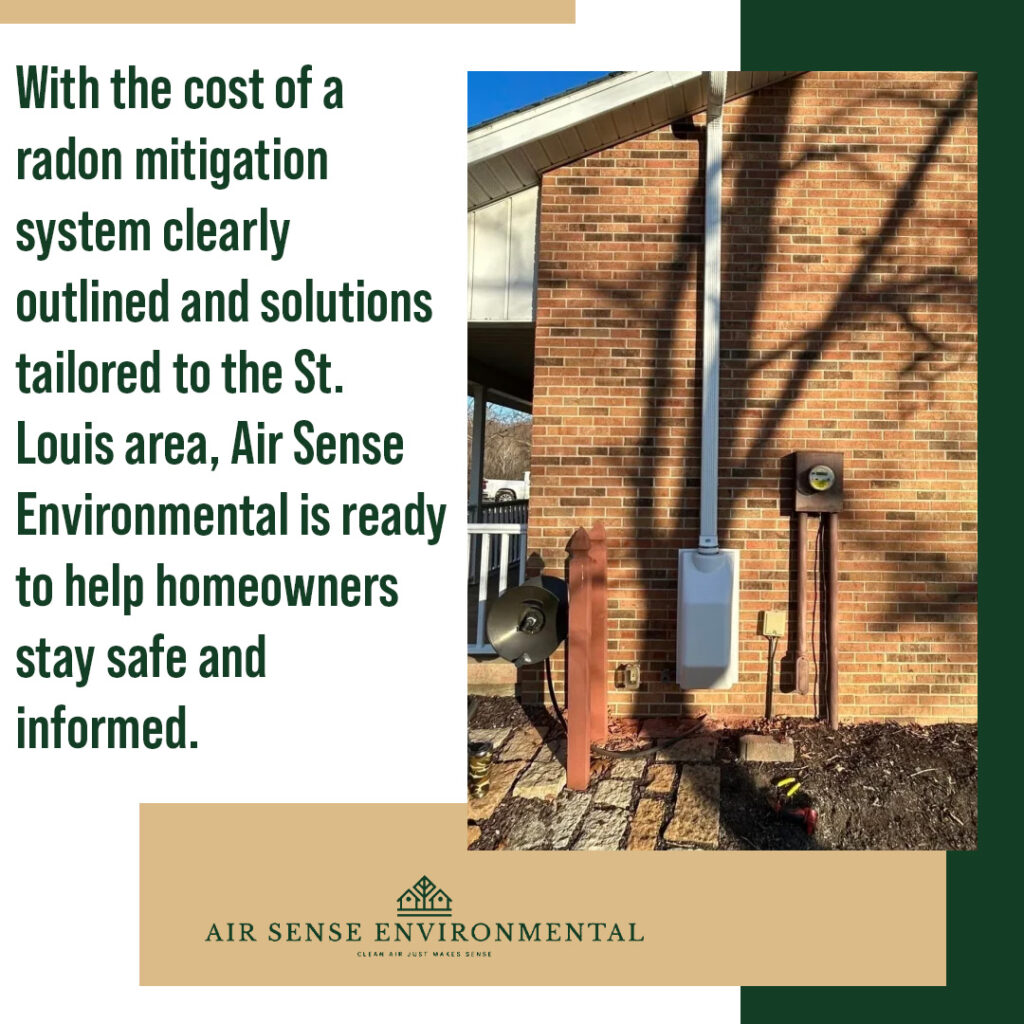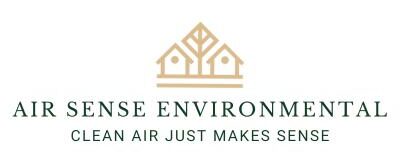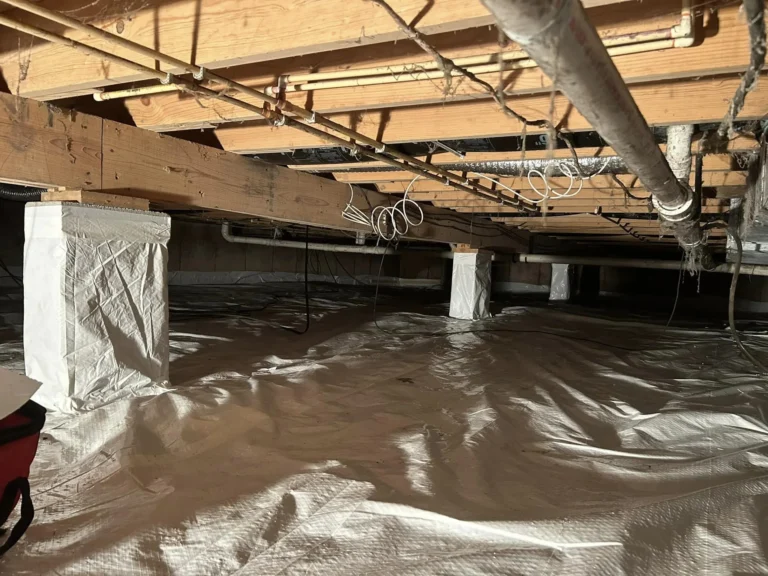Synopsis
Radon is a naturally occurring radioactive gas that can pose health hazards. It is often addressed during real estate transactions due to its potential impact on indoor air quality. Homebuyers and sellers are advised to conduct radon testing to confirm safe levels. Addressing elevated radon levels with remediation services can help reduce exposure risks and may contribute to property marketability. Air Sense Environmental provides radon mitigation services for residential properties in St. Louis and nearby communities.

Key Takeaways
- Radon is a dangerous gas that increases lung cancer risk and should be tested for in real estate transactions.
- Proactive radon testing and mitigation can improve home marketability and buyer confidence.
- Radon disclosure laws vary by state; sellers must comply to avoid liability.
- Mitigation systems, though an investment, offer long-term health and property value benefits.
- Air Sense Environmental provides effective and timely radon solutions.
Radon is a naturally occurring radioactive gas that presents serious health risks, making it a vital consideration for both homebuyers and sellers in real estate transactions. At Air Sense Environmental in Edwardsville, IL, we emphasize the importance of early testing and addressing potential issues through radon remediation, especially since high exposure levels are linked to lung cancer. In areas like St. Louis, where elevated radon concentrations are common, taking action early can prevent delays during the sale process and ease concerns about the cost of a radon mitigation system later on.
Homebuyers should prioritize radon testing as part of their due diligence when evaluating potential properties. Sellers are encouraged to take proactive measures by testing for radon and, if necessary, implementing remediation before listing their homes. This approach can enhance marketability and demonstrate a commitment to providing a safe living environment. At Air Sense Environmental in Edwardsville, IL, we offer reliable radon remediation and mitigation services to assist homeowners in handling these challenges and fostering healthier indoor spaces.
What Every Buyer and Seller Should Know About Radon
Radon is often overlooked in homeownership, yet it’s one of the most important environmental factors to consider, especially when buying or selling property. While you won’t see, smell, or taste it, radon can quietly accumulate indoors and contribute to long-term health risks. What makes it particularly relevant in real estate is that high radon levels are more common than many assume, especially in certain regions like St. Louis.
Homes of any age, size, or foundation type can have elevated radon levels, and testing is the only way to know. The presence of radon doesn’t necessarily mean a home is unsafe or unsellable—it simply means the issue needs to be addressed, just like any other condition noted during a home inspection.
The Importance of Radon Testing in Real Estate Transactions
Radon testing has become a key part of responsible real estate transactions. Whether you’re buying or selling a home, being aware of the radon levels in the property is critical, not just for peace and comfort but for health and financial reasons as well.
For home sellers, conducting a radon test before listing can help avoid last-minute issues during buyer inspections. Elevated radon levels are a common reason for renegotiation, delays, or even failed deals. Proactively testing and, if necessary, mitigating radon allows sellers to market their homes as safer, more appealing properties, which can add value and increase buyer trust.
For home buyers, requesting a radon test during the inspection phase is a wise step, especially in regions like Missouri and Illinois, where high radon levels are common. A test provides objective data about indoor air safety and can influence negotiations or future budgeting if mitigation is needed. Since radon is invisible and odorless, testing is the only way to know if the gas is present at harmful levels.
In many cases, real estate contracts now include contingencies for radon testing, reflecting growing awareness about its health implications. A small investment in testing upfront can prevent costly surprises down the line—and protect everyone involved.
Radon Disclosure Laws in Missouri and Illinois
Radon disclosure requirements vary by state, but both Missouri and Illinois recognize the importance of transparency in real estate transactions.
In Illinois, sellers are required to provide buyers with the “Radon Awareness Act” brochure and must disclose any known radon hazards. While testing is not mandatory, full disclosure of any existing radon test results is.
In Missouri, there is currently no state law that mandates radon disclosure, but sellers are strongly encouraged to be transparent about any known radon levels or mitigation efforts to avoid liability and streamline the closing process.
Being aware of the local disclosure expectations helps buyers make ideal decisions and allows sellers to reduce legal risk and improve buyer confidence.
Radon Mitigation Explained
Radon mitigation refers to the methods used to reduce radon levels in homes. The most common technique is a radon mitigation system, which usually includes a fan and a series of pipes designed to draw radon gas from beneath the foundation and vent it outside. This system effectively reduces indoor radon concentrations, providing a safer living environment for residents.
Radon Mitigation in St. Louis
Radon mitigation services in St. Louis are particularly relevant since the area is known for elevated radon levels. According to local health studies, homes in the region frequently report radon concentrations above the EPA’s action level of 4 pCi/L. Consequently, homeowners must become proactive in managing the risks associated with radon gas.
Air Sense Environmental provides radon mitigation services designed for residents of St. Louis. The team helps homeowners detect and reduce radon levels to create safer indoor environments.
Cost of a Radon Mitigation System
One common concern for buyers and sellers is the cost of radon mitigation systems. On average, homeowners can expect to pay between $1,500 and $3,000 for a complete mitigation system. While this may seem like a significant investment, it is important to weigh the costs of installation against the potential health risks and property devaluation associated with high radon levels.
For sellers, investing in a mitigation system before putting the home on the market can enhance buyer confidence, potentially leading to a quicker sale and a better price. For buyers, knowing the costs associated with radon remediation prior to closing can help them budget for necessary home improvements.
The Truth About Plants and Air Quality
Many homeowners explore using indoor plants as a natural method of improving indoor air quality. While it’s true that certain plants can absorb airborne pollutants like VOCs, it is important to note that indoor plants do not remove radon gas itself. Their role in air purification is supportive but should not replace the fundamental need for radon testing and mitigation.
Knowing the limitations of indoor plants in addressing radon exposure is critical for both buyers and sellers. Relying solely on plants for air quality management can lead to misinformed decisions regarding the safety of living environments.
The Importance of Professional Assistance
Radon mitigation is not a one-size-fits-all process—it requires precise testing, a deep comprehension of building structures, and the ability to implement a solution that’s both effective and compliant with current health guidelines. That’s why involving a professional radon mitigation company like Air Sense Environmental is not just advisable—it’s essential.
During real estate transactions, time is often limited, and decisions must be made quickly. Professional radon specialists can streamline this process by providing timely and accurate radon testing results, clear guidance on the next steps, and effective mitigation solutions tailored to the property’s layout and radon levels. This is especially helpful when high levels are discovered during a home inspection, as fast, reliable mitigation can help prevent deals from falling through.
Whether you’re a seller trying to avoid last-minute issues or a buyer protecting your health investment, partnering with professionals makes sure that you’re not taking unnecessary risks. It also shows a commitment to transparency and safety, key factors in building trust during a real estate transaction.
Local Expertise You Can Rely On
Air Sense Environmental proudly serves homeowners in Edwardsville, IL, and the surrounding areas, including St. Louis County, Alton, Belleville, and Chesterfield. Our commitment to providing high-quality radon remediation and quality crawl space repair sets us apart in the industry.
We understand the unique challenges associated with radon exposure and implement effective solutions that prioritize the health of your family. Utilizing advanced technology, including radon testing equipment and mitigation systems, Air Sense Environmental offers services designed to maintain optimum indoor air quality.
At Air Sense Environmental, we use advanced diagnostic tools to assess radon entry points and design systems that actively draw radon gas out of the home, reducing levels to well below the EPA’s action limit. We also help educate homeowners and agents on the system’s function and long-term maintenance, providing peace and confidence long after installation.
Next Steps for Buyers and Sellers
Home buyers and sellers should take proactive measures with regard to radon. If you are selling a property, testing for radon before listing it on the market is advisable. Taking care of potential radon issues ahead of time can help you present a safer living environment to potential buyers, making your home more appealing and enhancing its value.
For buyers, requiring radon testing as part of the home inspection process is a must. Knowing the radon levels in the home you are considering allows you to make ideal decisions and budget for any necessary remediation.
General FAQs About Radon and Real Estate
- Does a radon test delay the closing process?
Typically, no. A standard radon test takes 48 hours, and results are usually available shortly afterward. When included as part of a general home inspection, it doesn’t add significant time to the closing process.
- How long does radon mitigation take?
Most radon mitigation systems can be installed in a single day. If scheduled promptly, the process can be completed with minimal disruption to the real estate timeline.
- Can a buyer back out of a purchase if high radon levels are found?
In many cases, yes—especially if the purchase contract includes a radon contingency clause. High radon levels are often considered a material defect, and buyers may negotiate repairs, request a mitigation system, or even withdraw based on test results.
- Is the seller responsible for radon mitigation?
Responsibility is negotiable. While sellers are not always required to pay for mitigation, offering to address radon concerns can improve the likelihood of a successful sale and build buyer trust.

Secure Your Home’s Future By Partnering with Air Sense Environmental
Managing radon exposure is a significant consideration for anyone involved in real estate transactions. With the correct awareness and proactive measures, home buyers and sellers can navigate the issue of radon effectively. Air Sense Environmental in Edwardsville, IL, is dedicated to helping clients across St. Louis and surrounding areas address radon concerns professionally, making homes safer and healthier for occupants.
By prioritizing air quality in the home buying and selling process, you contribute to the well-being of your family and enhance the long-term value of your property. For more information on radon testing and mitigation services, contact Air Sense Environmental – Radon Mitigation & Testing at (618) 593-4815 or [email protected]. Your journey towards a safer home environment starts with informed decisions and the right support.

